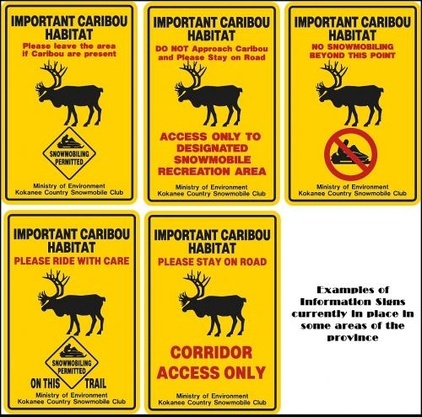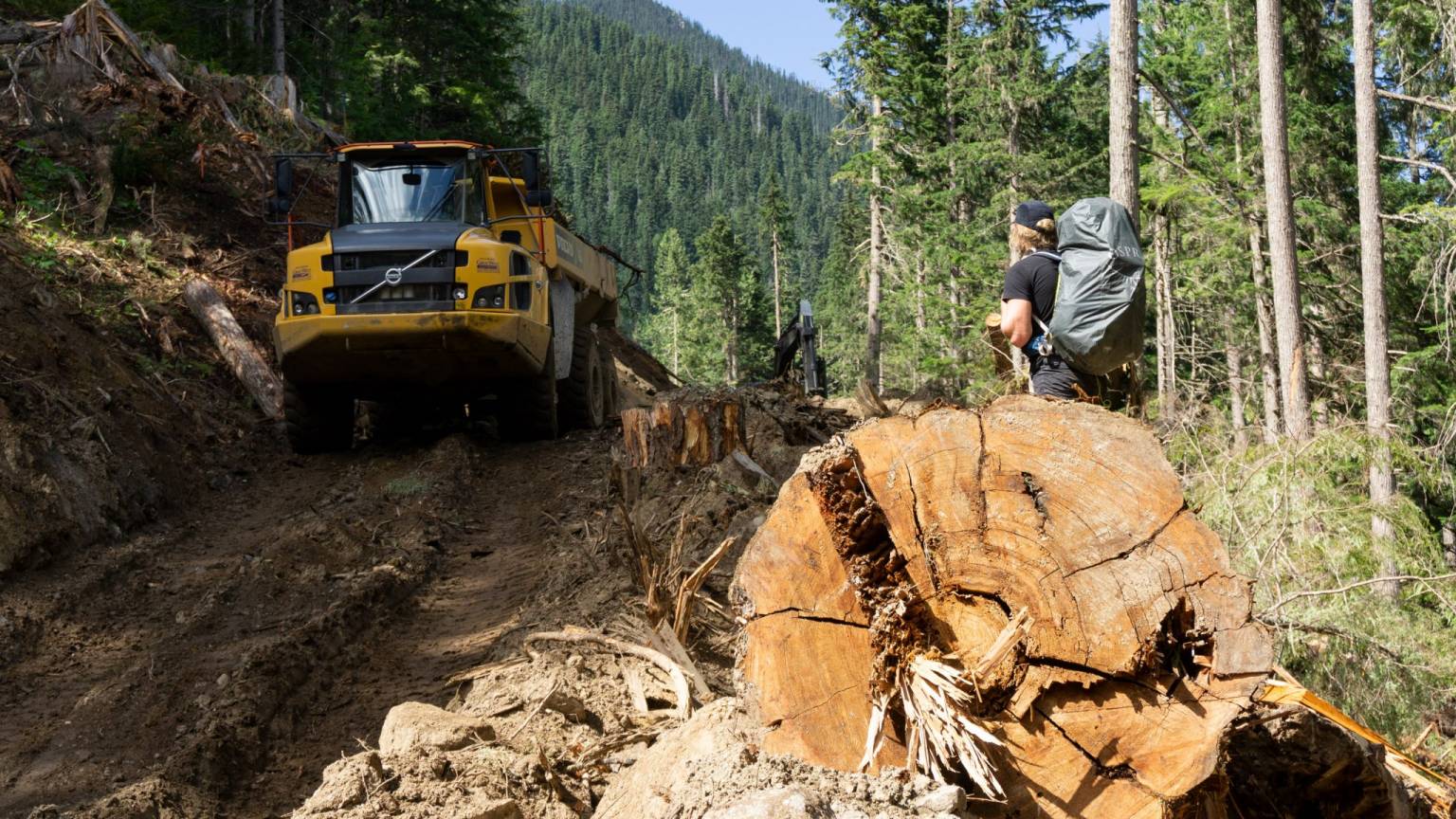Editorial rant: Caribou, moose, wolves, and government obtuseness
Does it seem odd (to put it mildly) that our provincial government is willing to spend between $4,300 and $10,000 per wolf to kill over 400 wolves near small and struggling groups of caribou in BC, allegedly to help endangered caribou survive, while at the same time, authorizing the razing of essential caribou habitat? How about adding to that foolishness, reportedly allowing hunting of moose cows and calves in certain areas, in an attempt to “starve” wolves to death so they won’t feed on caribou?
That seems to me to be close to the ultimate in idiocy; to try to remove one source of food for wolves in hopes that the hungry wolves won’t then resort to eating caribou instead, to avoid starving to death. I suggest that the ultimate idiocy is allowing continued logging of increasingly scarce caribou habitat.
Dan Simmons – who organized the Cow Moose Sign Project – pointed out, “Moose populations are declining all across the province and it is completely irresponsible for the provincial government to issue limited entry hunting tags for moose cows and their calves without consulting anyone.”
Simmons added, “Everyone knows that wolves are resourceful hunters and will seek out other prey, including caribou. No one was consulted in advance, not even First Nations, hunters, guides and outfitters or rural communities that traditionally rely on moose for sustenance. We are therefore calling on the provincial government to immediately suspend all 400 of the limited entry hunt for moose cows and their calves. We also want the cancellation of the open season and unrestricted hunt for calves that runs from October 1 to 25 in designated areas.”
BC used to have caribou herds. I used the term “groups of caribou” above because it seems wrong to call a small and diminishing number of them a “herd;” the definition of herd is “a large group … ” and we have no more large groups of caribou. As reported in The Narwhal, a dozen of BC’s groups of caribou have fewer than 25 animals.
Can we ever have herds of caribou again? I suggest that unless the various departments of the BC government can co-ordinate their efforts toward that end, and offer some other form of realistic support to our loggers than allowing continued logging in caribou habitat, it’s extremely unlikely. More likely, as things are now, that all BC’s tiny and struggling groups of caribou will be extirpated by clearcut logging of the last bits of their necessary habitat – old-growth forest that covers large areas, including higher-elevation forested mountainsides as well as valley bottoms. And by the numerous other disturbances of their habitat that the government permits, even in so-called “protected” habitat: cut blocks, drill pads and cat skiing leases which cover over 1,000 hectares in ungulate winter range, according to Wilderness Committee spokesperson Charlotte Dawe.
Chief Roland Wilson of the West Moberly First Nations told author David Moskowitz that in earlier times, caribou were considered “a convenient food. There were so many caribou here that the elders said they were like bugs on the landscape.” (From “Caribou Rainforest” by David Moskowitz – a beautiful and readable book, which I highly recommend for anyone curious about caribou in BC.)
Now, four of BC’s former southern mountain caribou herds are gone. Extirpated. Fourteen small fragments remain.
Can 150 caribou properly be called a “herd”? if so, there is a herd north of Revelstoke that will lose crucial habitat, thanks to BC Timber Sales. According to a report from Wildsight, big old-growth trees are already being cut to make way for roads into the Argonaut Valley – where caribou are known to live.
Wildsight’s materials state,
“The Argonaut Creek watershed north of Revelstoke is important habitat for the North Columbia caribou herd. The herd, at 150 members, is one of BC’s most viable wild populations of southern mountain caribou left. And now the government’s own logging agency, BC Timber Sales plans to sell off logging rights in the area and has already started to cut down massive old growth trees in order to build roads to access these cutblocks.
“Our government has pledged to protect caribou and caribou habitat, but they will do neither if they allow logging in Argonaut Creek.”
Ironically, the United States – which has no remaining caribou at all in the contiguous states — is preserving caribou habitat south of the border, to enable them to be reintroduced to U.S. territory eventually, while BC – which still has a few declining groups of caribou – is still permitting caribou habitat to be destroyed by clearcut logging. And if those old-growth forests were ever allowed to grow back, that would take centuries. Too long for the caribou.
And perhaps too long for us, too. Old-growth forests help curb climate change; the more old-growth we destroy, the more we will accelerate the climate crisis and all its damage to life as we know it: wildfires, droughts, heat waves, out-of-place and extreme cold snaps, unusually intense rainfall and flash floods, weather-related crop failures and supply chain interruptions, billions of dollars worth of damage annually to our society’s infrastructure, extinctions of plants and animals, disappearance of glaciers and the water they store and supply, sea level rise inundating low-lying and heavily populated regions, climate refugees … and so on.
But back to our vanishing caribou. Let’s sum up the BC government’s approach to assisting the caribou’s survival as a species in BC so far:
· Clearcutting of BC’s old-growth caribou habitat – destroying the places they need to survive;
· Very expensive wolf culls which slaughtered 463 wolves but didn’t save caribou;
· Claiming to protect some caribou habitat, while still granting permits for logging in that habitat;
· Also granting permits for highly intrusive heli-recreation in caribou habitat;
· Also granting permits for mineral exploration in caribou habitat;
· Allowing snowmobiling in caribou habitat – noise disturbs them and the packed tracks allow greater predation;
· Allowing hunting of cow moose and calves in some areas near caribou habitat to try to make the wolves hungrier, or starve them.
There – have we saved the caribou yet? Well, no.
Can we please try genuinely preserving caribou habitat,without allowing any other intrusive uses? That seems to be their overwhelming need. If the caribou had enough good habitat, we might not have any quasi-plausible excuse to commit wholesale slaughter of other animals, like wolves and moose. Especially since the first experiments with slaughtering wolves didn’t work.

























